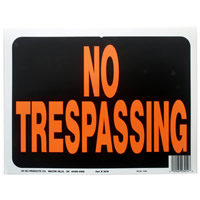A landmark case has been decided in the 9th Circuit Court of Appeals. Essentially, three men went into a Home Depot in Medford, Oregon and bought an unusual amount of fertilizer, along with deer repellant and a few other items consistent with a large scale outdoor grow operation. A DEA agent was monitoring the Home Depot (scary), and after seeing the purchased items being loaded into a 1997 Jeep Grand Cherokee, he decided to follow the vehicle. After the men arrived at another store, the DEA agent attached a tracking device to the undercarriage of the vehicle. By the end of the investigation, the DEA agents removed and replaced a tracking device on the vehicle no less than 7 times. Five of those times the vehicle was in a public area (parking lot or public road), however, two of the times the DEA agents went into the man’s driveway and placed a tracking device onto his vehicle. At the time, the vehicle was parked just feet from the owner’s front door. In the end, the DEA followed the men to their outdoor grow operation, and I think you can assume what happened next.
After the Jeep owner appealed his conviction, the 9th Circuit Court of Appeals upheld his conviction. His only option now is if the US Supreme Court will hear his case. However, the current make up of the Supreme Court rarely takes up cases like this, and they don’t have to hear a case unless they want to. Even then, there are so many conservatives on the Court, the result would not be favorable. So what are the ramifications for the rest of society? This case essentially states that a law enforcement official can attach a tracking device to your vehicle and monitor your movements AT ANY TIME, FOR ANY REASON. It is perfectly legal. In the appellate court’s opinion, only the inside of the house is private, as well as the inside of the vehicle. The exterior of the vehicle is considered public, and even private land is considered public by the court. NOTE — THE COURT SAID IF THE MAN HAD NO TRESSPASSING SIGNS AND A GATE, IT WOULD BE CONSIDERED PRIVATE. And as far as monitoring movements, the court points to the case of US v. Knotts, which stated that it was legal to use a ‘beeper’ to track a vehicle. In that case, the US Supreme Court pointed out that tracking via an electronic device is no different than if an agent simply followed the car around. When you are driving on public streets, you have no expectation of privacy.
Because this case was decided at the Federal Appellate level, it only applies to the 9th Circuit Court at this time. The 9th Circuit Court includes; Alaska, Hawaii, Washington, Oregon, California, Arizona, Nevada, Idaho, and Montana. So if you live in these states, BE WARNED! BUY A GATE, SOME NO TRESSPASSING SIGNS, AND CHECK UNDER YOUR CAR OFTEN. AND WHATEVER YOU DO, NEVER EVER SHOP AT HOME DEPOT FOR GROWING SUPPLIES!!!!!!!!!!!









